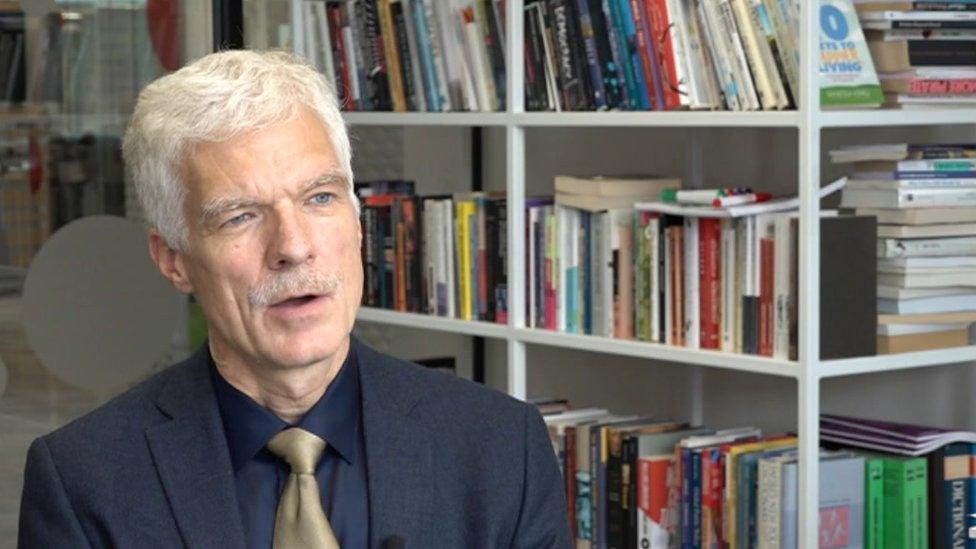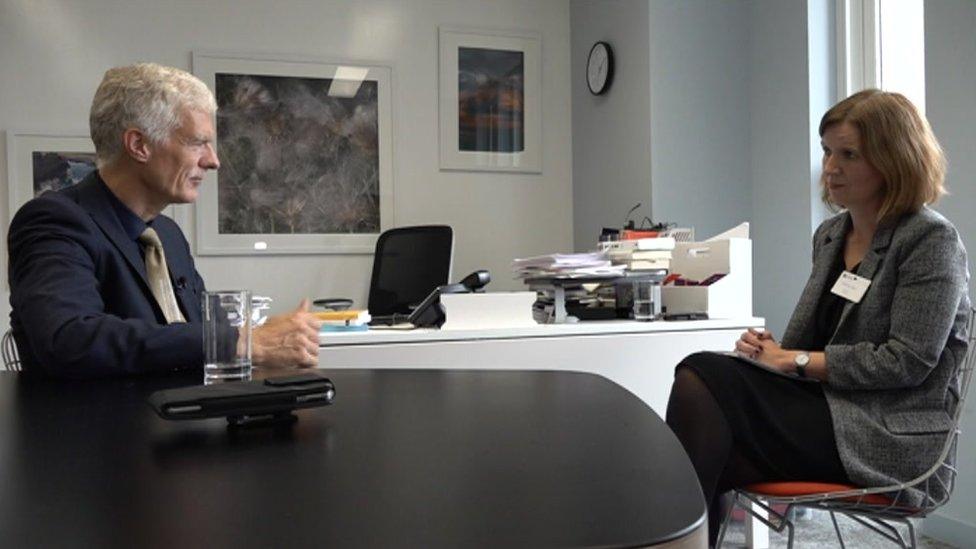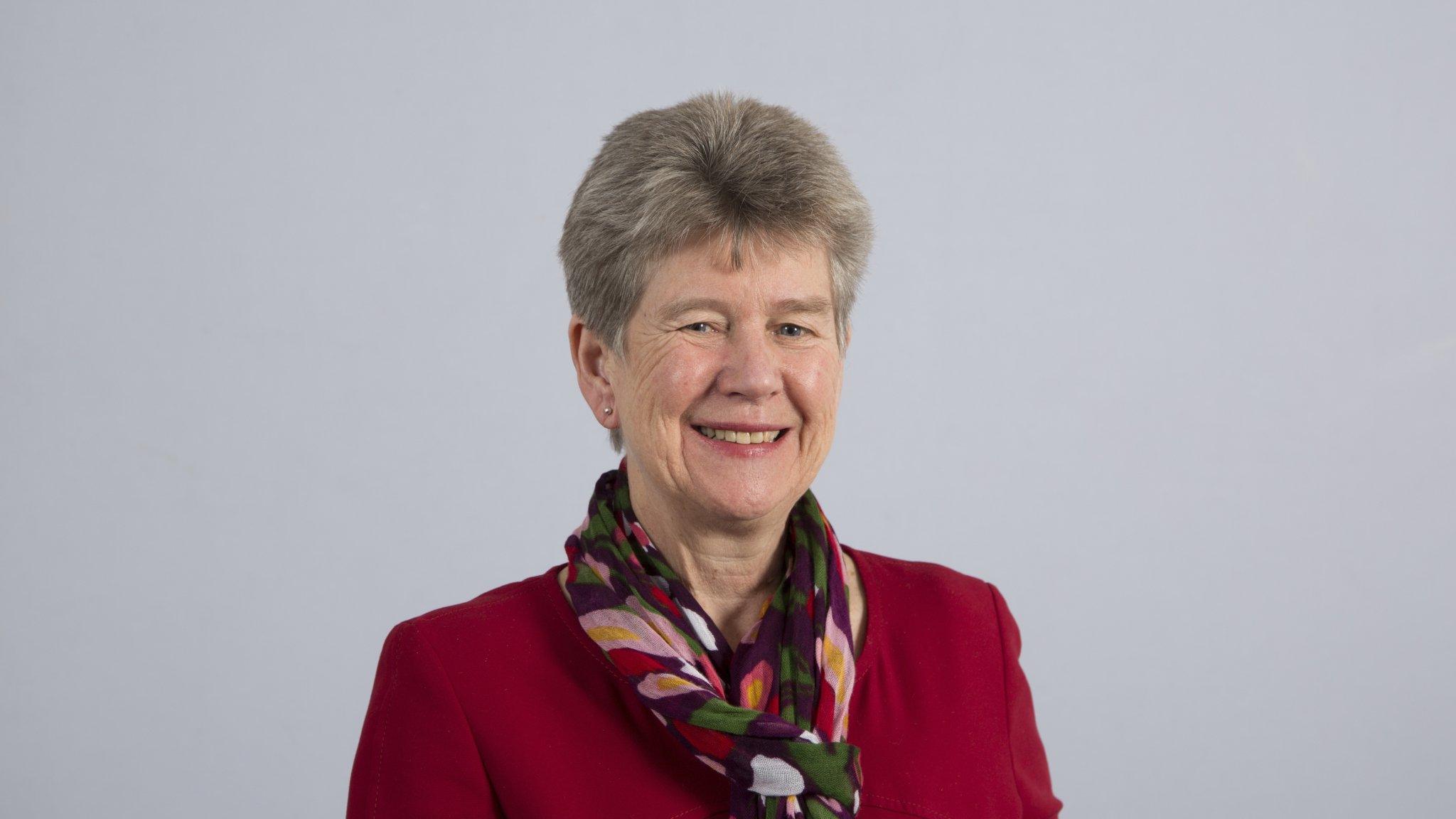Pisa tests boss: Wales education system 'lost its soul'
- Published

Andreas Schleicher is one of the most influential figures in global education
"It's not just that Wales has underperformed, it's seen its performance decline".
That's the stark assessment of Andreas Schleicher, head of education and skills at the Organisation for Economic Cooperation and Development (OECD).
Mr Schleicher spoke to BBC Wales ahead of the publication of the latest set of Pisa, external results, due on Tuesday.
Pisa tests are taken by 15-year-olds in dozens of countries and economies across the world, and Wales has a poor record.
Mr Schleicher says past results reflect a system where too many young people are leaving education without the basic skills they need.
These are deep-seated problems, he said.
'Lost its soul'
The system has "lost its soul" by not focusing on high-quality teaching, where education is treated as "a commodity".
"What is very clear is that the gap between what the world requires from learners and what schools provide in Wales has not become smaller, it's become wider", he explained.
Pisa has become an increasingly important global measure of educational performance, though some question its methods and the knee-jerk reactions it can prompt in countries that do badly.
Wales had its own case of "Pisa shock" in 2010 when results fell to below the OECD average in all three areas - reading, maths and science - and Welsh pupils' performance was lower than every other part of the UK.

Pisa is the OECD's Programme for International Student Assessment
Wales has remained at the bottom of the UK table, including from the last set of results, published in 2016.
"I would definitely see the Pisa shock in Wales as a very healthy wake-up call for the system," Mr Schleicher said.
"It created a sense of self-awareness which was lacking".
And he is damning about the implications of what he calls "a 20th Century model of learning" for young people's life chances.
Mr Schleicher added: "A significant number of young people are not even reaching the baseline levels of knowledge and skills where you can start.
"It's not about a few schools underperforming. It's more an issue of many young people not getting the education in many schools in many socio-economic contexts."

What are Pisa tests?
Pisa's full title is Programme for International Student Assessment
Tests are always in maths, reading and science
They are run every three years by the Organisation for Economic Co-operation and Development (OECD)
They are taken by 540,000 15 year old pupils in 72 countries and local administrations
Singapore outperforms all other participating countries in science. Japan, Estonia, Finland and Canada are the four highest-performing OECD countries
Wales took part for the first time in 2006
Tests take about two hours and all are now completed on computer

He believes education should become "everybody's business" - communities, employers and parents.
"Parents should see actually their own attitude to learning makes a huge difference on outcomes," he added.
"The simple fact of when a parent asked their children in Pisa 'how was school' had a greater impact on the quality of learning outcomes than family income.
"So just showing to your child 'what you do in school is actually important to me' is a very very important signal."

Andreas Schleicher spoke to BBC Wales ahead of the publication of Pisa results on Tuesday
Mr Schleicher welcomed the reforms to education aimed at boosting the quality of teachers and teaching.
"Overall whether that's enough to raise the status of the teaching profession, I'm not yet convinced but it's an important first step," he said.
Mr Schleicher believes there are "some very inspiring ideas" in the new curriculum being introduced in classrooms in Wales from 2022.
Overall, he believes the reforms are leading Wales "towards a higher-performing education system".
'It will take time'
But that may not reassure parents who are worried their children have been educated over the past decade in a system that has performed so badly at PISA.
"If you do the right things they will translate into better results and it will take time", he said.
"Parents should understand that what Wales has done is the best bet to improve education."
When the latest set of results are published on Tuesday, parents, politicians and teachers will be eager for early signs that those changes are starting to pay dividends.
- Published5 December 2016
